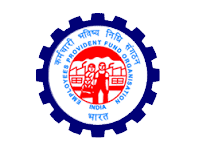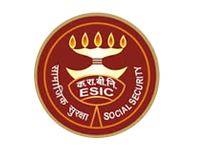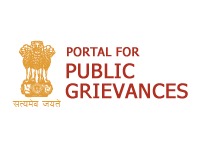Training Program
All training schedule are listed here:
|
Duration : 07/06/2021 to 11/06/2021 The programme endeavors to enlighten the participants about the inequalities prevalent in the world of work and the challenges faced by women in the labour market. It would enable the participants in developing an understanding about the linkages between gender, work and social protection. The programme also aims at addressing larger questions of women’s empowerment and agency by effective designing of the social protection mechanisms in order to prevent gender based deprivation and ensure social protection through a rights based approach. |
|
Duration : 07/06/2021 to 11/06/2021 The challenge of employment, especially of productive employment in the formal segments of the economy, remains formidable. Employment depends both on demand for labour and supply of it. Creation of employment opportunities Is not satisfactory despite experiencing satisfactory growth rate. The Newly industrializing economies or the so called East Asian Tigers have left many impressive and innovative experiences for us. We need to understand their policies carefully to find better solutions for our employment challenges. The programme aims at what can we learn from them and how could we go about it. |
|
Duration : 14/06/2021 to 18/06/2021 The aim of the programme is to make leaders aware about importance of work proficiency to achieve personal and organizational goals. |
|
Duration : 16/06/2021 to 18/06/2021 The course aims to provide a structural analysis of the complex relationships between informality, gendered relations of power and poverty. It also provides researchers with an enhanced understanding of qualitative and quantitative methods on gender, poverty and the informal economy. This course will be an opportunity to discuss and debate on the ongoing issues in conceptualizing and measuring poverty, women empowerment and gender. |
|
Duration : 21/06/2021 to 25/06/2021 The programme aims at equipping the participants with the context of recent Labour reforms and labour codes. |
|
Duration : 22/06/2021 to 24/06/2021 The programme aims to equip participants with skills and knowledge for effective and timely identification, rescue, release and rehabilitation of Child Labour and Bonded Labour. |
|
Duration : 28/06/2021 to 02/07/2021 The employability skills, especially, the soft skills are highly significant in the current labour market context, and it is necessary for getting a job. This course mainly aims to facilitate youth to work. |
|
Duration : 28/06/2021 to 02/07/2021 The programme aims to orient the participants about gender budget initiatives which have the potential of contributing to the promotion of gender equality. |
|
Duration : 28/06/2021 to 30/06/2021 The programme aims to sensitize the participants about the changing nature of employment, the inequalities arising out of these changes and the need for social protection. It would enable participants to understand the international standards and existing legal instruments as well as some global best practices in order to promote workers’ rights, based on a model of social justice. |
|
Duration : 05/07/2021 to 08/07/2021 Migration is a central feature of the contemporary world of work. In the context of India, migration flows, both internal and international, assumes paramount significance in livelihood options and development process. It is very well acknowledged that migration have had very positive developmental outcomes in the origin and destination centres. Considering that a large number of internal as well as international labour migrants return to their place of origin due to the temporary nature of migration flows, there is increased attention on maximising the development benefits of migration through appropriate reintegration of return migrants. In such a context, linking migration with the skills of migrants, particularly in terms of the skills acquired in the destination centres, is pivotal for facilitating effective reintegration policies. It is within this broad context that this training programme focusses on various dimensions of the inter-linkages between migration, skills and reintegration. |
Pages
March, 2021
|
Duration : 08/03/2021 to 10/03/2021 |
|
Duration : 08/03/2021 to 09/03/2021 |
|
Duration : 08/03/2021 to 10/03/2021 |
|
Duration : 11/03/2021 to 12/03/2021 |
|
Duration : 15/03/2021 to 17/03/2021 |
|
Duration : 15/03/2021 to 16/03/2021 |
|
Duration : 15/03/2021 to 17/03/2021 |
|
Duration : 15/03/2021 to 17/03/2021 |
|
Duration : 17/03/2021 |
|
Duration : 18/03/2021 to 19/03/2021 |


























